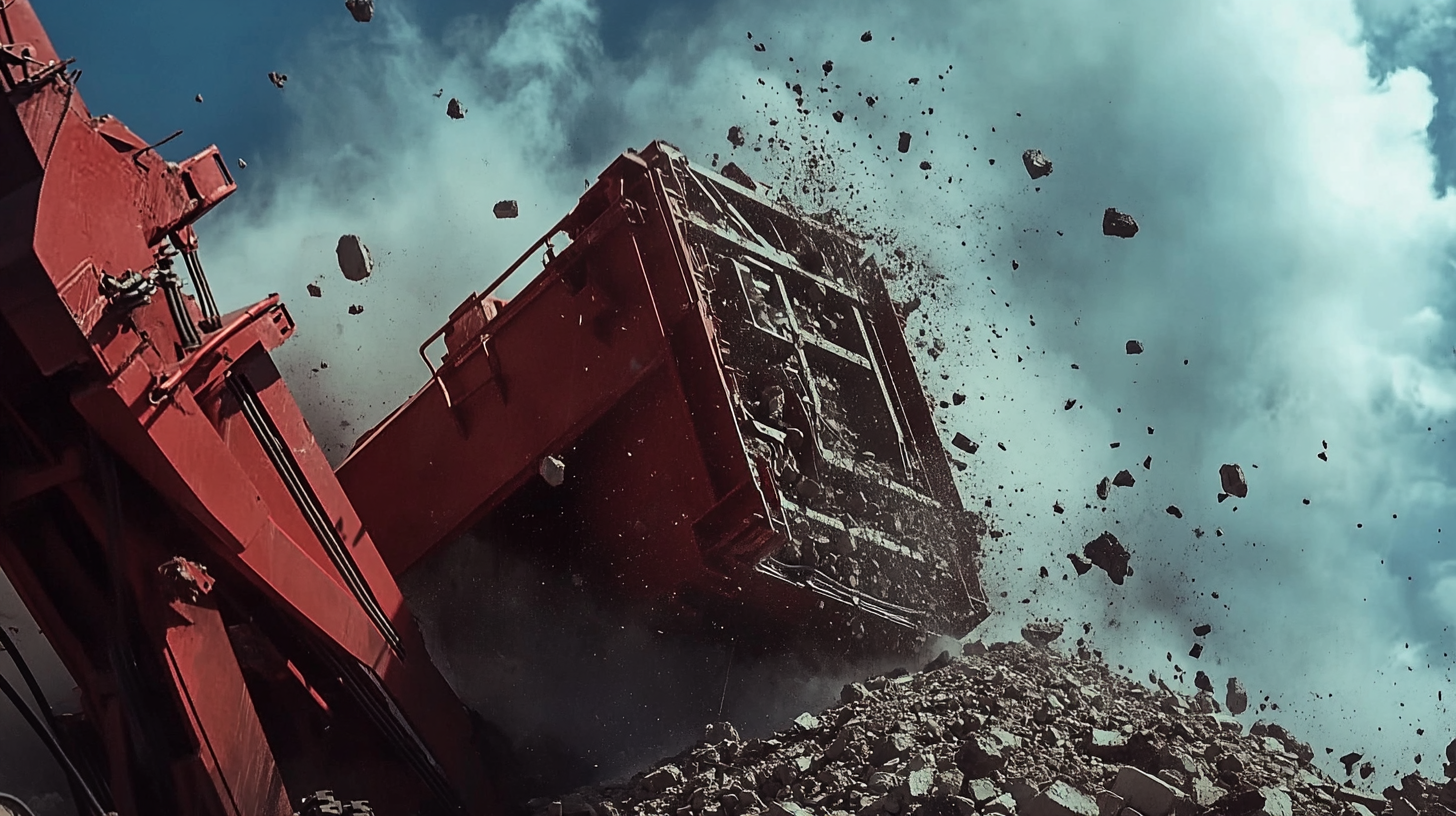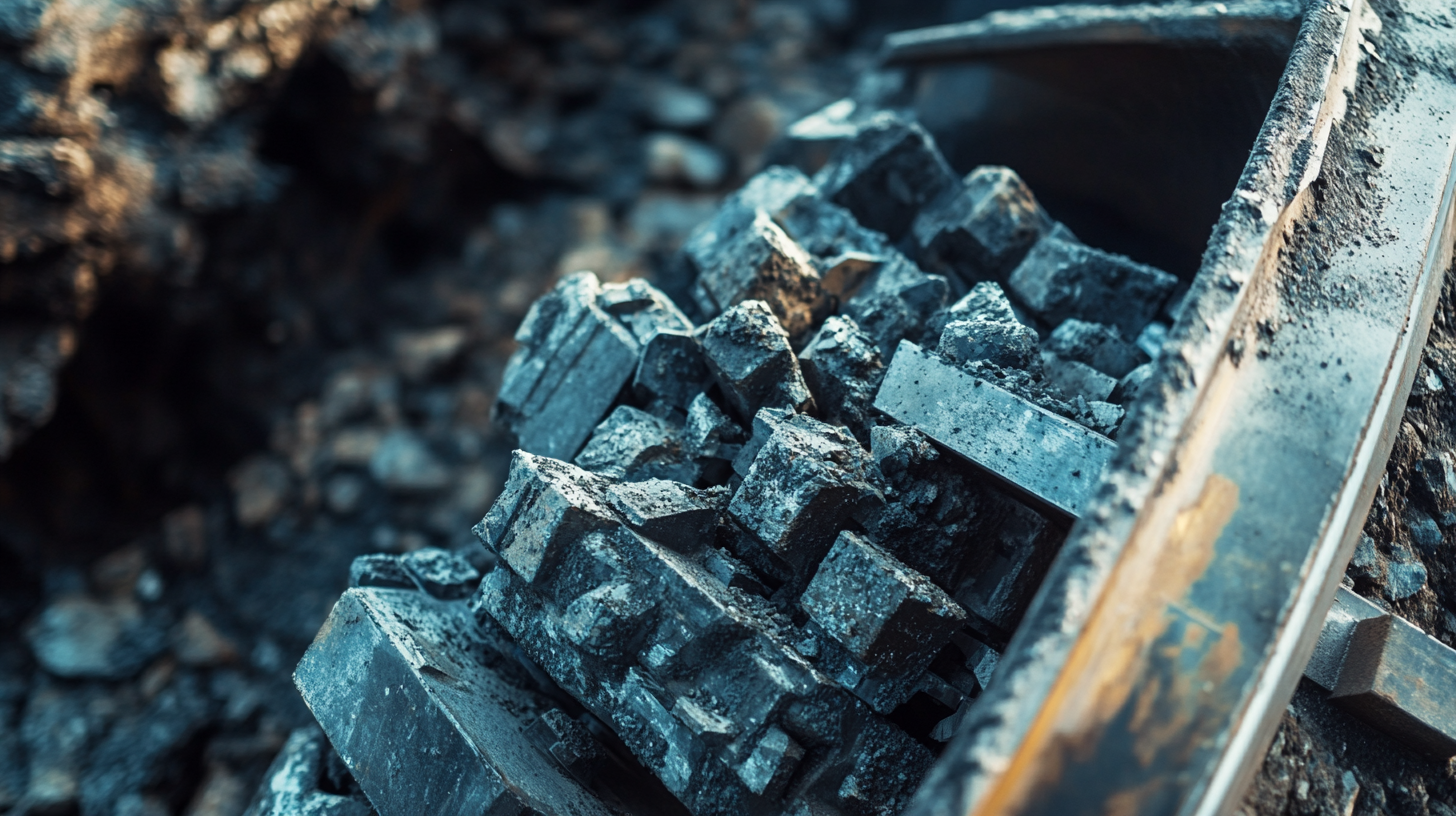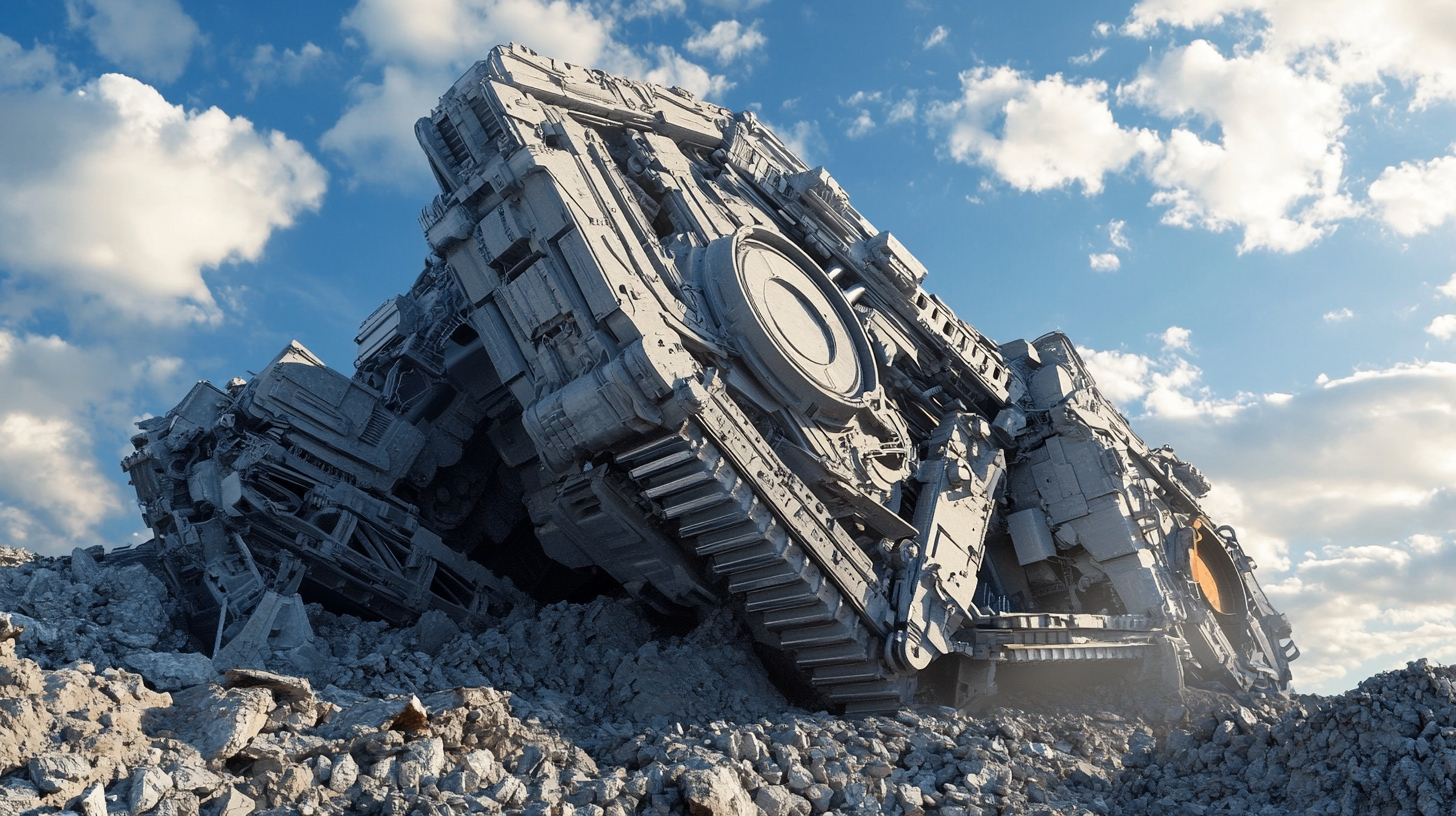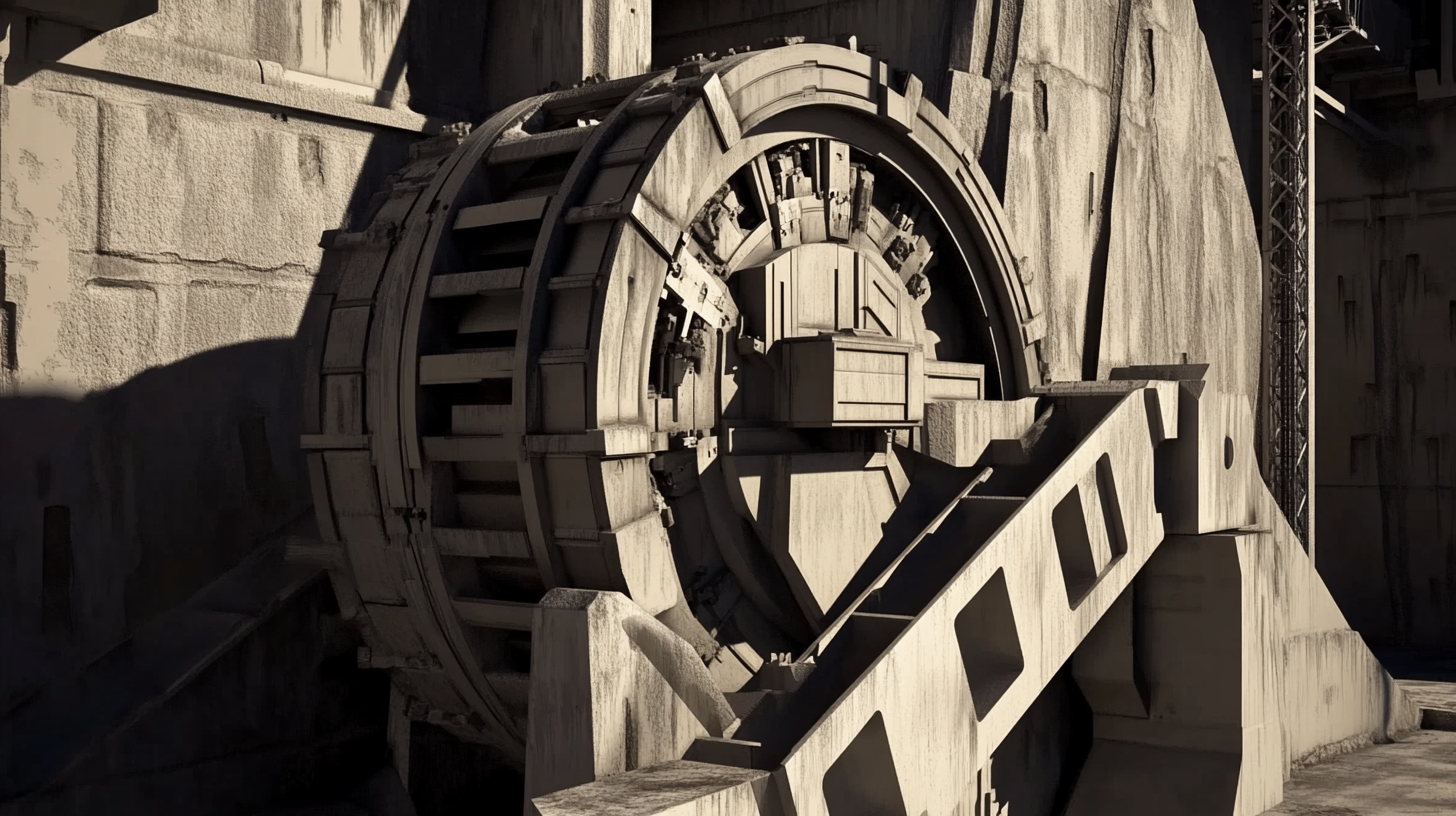The global demand for impact crushers has been on the upswing due to rapid urbanization and infrastructure development. As per a recent report published by Research and Markets, the global impact crusher market has been projected to grow at a 5.1% CAGR during the period of 2021-2026, which puts its value at nearly USD 4 billion by 2026. This demand surge is due to the increased requirement of aggregates in construction and mining, demanding the impact crushers in processing those materials.
For global buyers, who are looking for efficient and effective solutions to their crushing needs, it has become essential to understand the technical specifications and benefits of impact crushers. This ultimate guide discusses ten major advantages of impact crushers, including versatility, low maintenance, energy efficiency, and good particle shape. The blog intends also to highlight the same for potential equipment buyers, providing them with information needed to ensure informed decisions during their equipment purchasing process.

When you want to buy an impact crusher, you will have to have to be aware of the specifications that define performance and its suitability to your individual requirements. The impact crushers are a unique mixture of high ratio reduction and being able to have the attributes to process so many different materials. Thus making it into common practice across various industries like construction as well as mining. Important specifications such as rotor size, impact speed as well as dimensions of feed opening are the ones that one would consider as all these affect the efficiency of the machine and the output such as crushing. However, it is not just mechanical specifications that you need to look at but also operational factors. An impacter capacity is about tons per hour and thus gives you an idea about keeping production on place with it. What else is so much important is understanding the energy consumption and maintenance requirements that will assist with the alignment of the units with operational goals and budgets. Satisfy what the unit by which characterize the materials an impactor is supposed to handle, since it also involves its performance as well as life expectancy. Lastly, it is very important to know all the benefits of an impact crusher whose specification is well taken care of. There are a lot of advantages that will accrue from such a well-specified impact crusher, including simple operation, reduced wear, and a variety of applications, making it a more cost-effective and productive machine. Know this so that you are making an informed decision meeting your operational challenges while maximizing ROI.

Consider buying impact crushing machines for your crushing endeavors. This type of machine will work out perfectly for you because of its unique benefits, one of which is wide processing capabilities-it can efficiently work with various materials such as from concrete and asphalt to rocks and gravel; for that matter, in most instances, businesses find impact crushers worth investing in for many projects because of this additional feature that allows them to increase their area of operations without adding machines.
Another benefit of using impact crushers is a high reduction ratio. Compared to other conventional crushers, these machines can produce finely crushed output in a fewer number of passes. High speed means time-saving for production as well as savings in costs from lower operational expenses. In effect, businesses stand to get a bit more output from lesser wear and tear on machine components, therefore saving on maintenance.
Apart from the above, impact crushing machines offer relatively less dust pollution and noise when compared to other methods. This is ideal for urban projects where there can be stringent regulations. Such machines would, therefore, help businesses in establishing compliance with environmental requirements while also remaining efficient in their operations. This dual argument adds even more value to their popularity among organizations across the globe as they remain ahead in the race to remain competitive in a dynamically evolving market.

Broader general knowledge up to October 2023, however, maintains that impact crushers are critical in making smart buying decisions and, therefore, should be distinguished from other types of crushers in crushing equipment selection. Impact crushers handle an assortment of materials, beginning from soft rock aggregates to extremely hard ores. Their operations revolve around high-speed impacts rather than compression, allowing them to favorably shape and evenly grade the particle. This parameter really distinguishes them from cone or Jaw Crushers, which tendertheir impact onto materials using crushing forces.
Besides, impactors have the added advantage of being able to finely tune their processing ability and size according to certain specifications. This flexibility enables operational setups which differ considerably from standard procedures, types of material, or end products considered in traditional crushing lines. Whether it be recycling concrete or crushing limestone, these machines can be easily configured for multiple applications. This broad spectrum of configuration and adjustment renders it an attractive market selection for customers looking for versatile and cost-effective machinery.
From a comparative perspective, maintenance and operational efficiency remains another area to consider. With fewer moving parts than other types, maintenance is made easier by impactors and causes less wear over the long run in comparison to other crushers. Fast wear part changeouts, such as blow bars for impactors, benefit high uptime and productivity. Conversely, higher maintenance profiles for gyratory or cone crushers could actually plead against their use in reducing the overall operational costs associated with increasing the efficiency of crushing operations.

Several points-influencing factors will let you know how correctly your selection meets the demands of your business and its projects. Above all, material properties are the first to keep in mind, as different impactors are meant to crush different material. Soft rock will be processed differently than hard aggregate for better performance. Knowing the hardness, abrasiveness, and moisture of the material you will be working with will help select the perfect equipment to do the job without too much overhead wear.
Another specification telling how the product will be defined is the size of the feed opening, capacity, and reduction ratio. The throughput and fineness of crushed material depend on these factors. The buyer should evaluate the production requirements and source a recent crusher to meet the demand and flexibility for future projects. Crusher design and technology also play a critical role in determining maintenance and operational costs, hence the consideration of fluidity in servicing and spare parts availability.
Efficiency is another consideration in the choice of an impact crusher since an efficient machine increases production and also minimizes energy consumption. Advanced control systems and optimization software for improving productivity should, therefore, be given priority listings as they add significant value to the overall performance of the crusher. He can make his investment in impact crushing technology fruitful by keeping all these considerations in his pocket while looking for buyers in the global markets.
Potential purchasers typically want to know everything there is to know about specifications and advantages of impact crushers. One question that comes up often is as to what type of materials can be processed. Impact crushers are very versatile in that they can readily handle a variety of raw materials: concrete, limestone, quartz, and asphalt. That gives them more applications in different industries, namely construction and recycling.
Another question frequently asked is about the productivity rates of the impact crushers. In this way, many buyers would like to know how well it fares against the jaw crushers in terms of feed tonnage and reduction. Impact crushers are therefore geared towards serving a high reduction ratio and will most cases yield a finer output than jaw crushers do, in a single pass. This is most useful to projects producing high-quality aggregates thus saving time and cost of processing.
Also, buyers are very much interested in the maintenance level necessary for the impact crushers. In general, while some other crushing equipment are quite complex, impact crushers feature very simple designs where a few moving parts are mainly involved, thus causing less wear and tear and requiring easier maintenance. This keeps maintenance and operation costs low as far as the life expectancy of the machines goes, while minimizing downtime. Answering these questions satisfactorily will then allow buyers worldwide to make informed selections regarding the most appropriate impact crusher for their operations.
Key factors include material properties, product specifications, design and technology, maintenance requirements, operational costs, and efficiency.
Different crushers handle various materials differently; knowing the hardness, abrasiveness, and moisture content helps in choosing a crusher that performs well without excessive wear.
Buyers should consider the size of the feed opening, the capacity, and the reduction ratio to ensure the crusher meets production goals and offers flexibility for future needs.
The design and technology can influence maintenance requirements, operational costs, and ease of access for servicing and replacement parts.
Efficiency enhances productivity and minimizes energy consumption, making it crucial to choose machines with features like advanced control systems for better performance.
Buyers should seek crushers with advanced control systems and optimization software that can significantly enhance overall performance.
The reduction ratio determines the fineness of the crushed material and plays a key role in meeting specific production requirements.
Choosing a machine with manageable maintenance requirements and readily available replacement parts can help reduce downtime and operational costs.
The size of the feed opening affects the material size that can be processed, impacting the throughput capabilities of the crusher.
By considering all the aforementioned factors, buyers can optimize their investment and select the best impact crusher for their operational needs.